Anyone who does not know the basic rules for using gas in everyday life is like a monkey with a grenade. One careless movement - and an explosion can happen. But these rules are insanely simple, logical and well-founded. Anyone who plans to use gas appliances (stoves, boilers, water heaters, etc.) should familiarize themselves with them.
We will tell you about what standards should be observed when installing, connecting and subsequent operation of the equipment. The article presented by us sets out in detail the procedure for detecting a threatening situation associated with a blue fuel leak. Our recommendations will help you extend the life of technical devices and secure your personal space.
The content of the article:
- Rules for using a gas stove
- Rules for using a boiler or stove
- Rules for using a gas water heater
- Private house gasification standards
- What if it smells like gas?
- Prohibited actions when using gas
- Monitoring the operation of gas equipment
- Conclusions and useful video on the topic
Rules for using a gas stove
Based on the Decree of the Government of the Russian Federation No. 549, the population that uses gas must sign maintenance contract in-house gas equipment and emergency dispatch support with a specialized service.
The room in which the gas stove is located must be well ventilated. Those. it should not be installed in a room without windows.
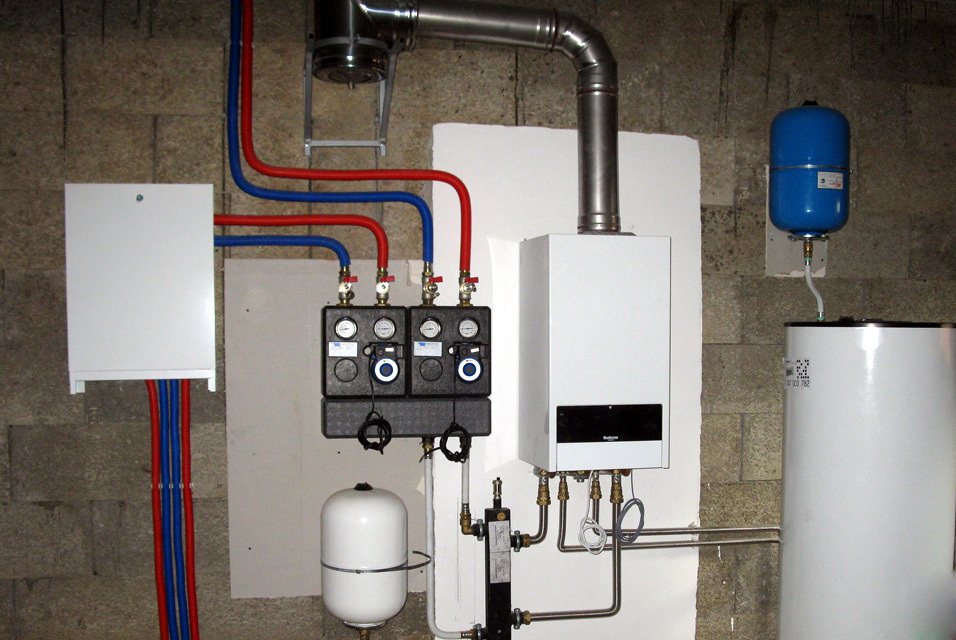
The installation of any gas equipment in a room without window openings and a ventilation system is contrary to basic safety requirements
Before using the gas stove, it is recommended to ventilate the room and make sure that all burner and oven burner taps are closed. After that, you can turn the valve on the gas pipeline to the stove. If the valve flag is parallel to the gas pipe, then this indicates that the gas supply is open.
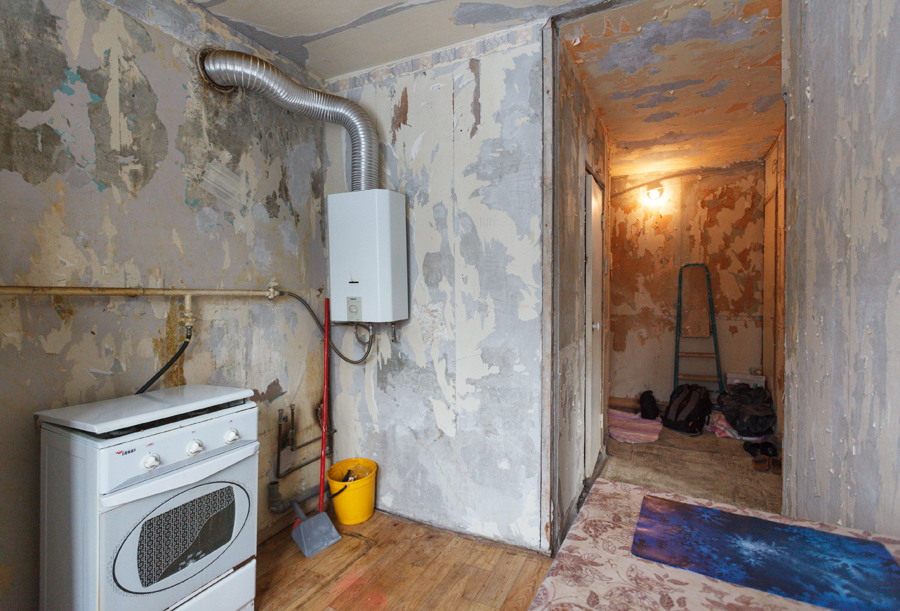
The gas pipeline pipes that are in the apartment cannot be covered with panels during repairs, because they are necessary for full gas shutoff
Then you need to light the gas. If we are talking about an ordinary stove, you need to take a lighted match and bring it to the burner, and then open the tap of this burner. When operating plates with electric ignition, it is this ignition that performs the function of a match.
Before turning on the oven, ventilate it for 3-5 minutes by opening the door. Do not leave the taps of the burners and ovens in the open position without a flame for more than 5 seconds.
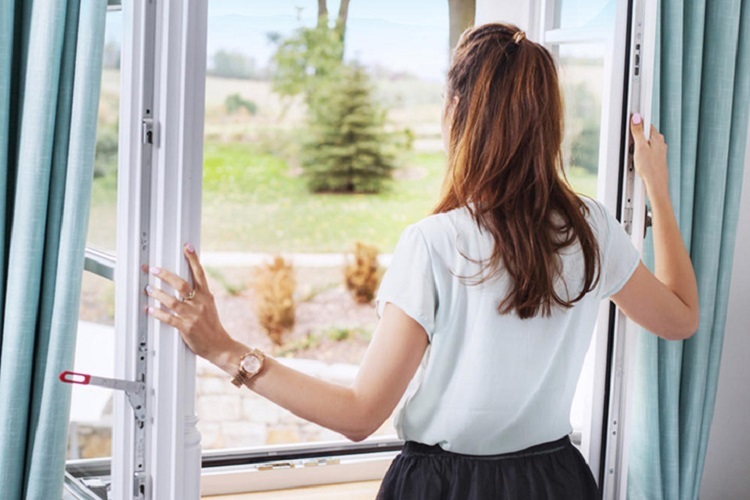
If the burner tap has been open for a long time, it is urgent to close it and immediately open the windows in the room.
Fire should appear in all burner holes. If this does not happen, you need to turn off the gas and check the condition of the burner. It is normal to burn gas if the flame is calm and has a bluish or purple tint. If the color of the flame differs from the indicated one, you must immediately turn off the tile.
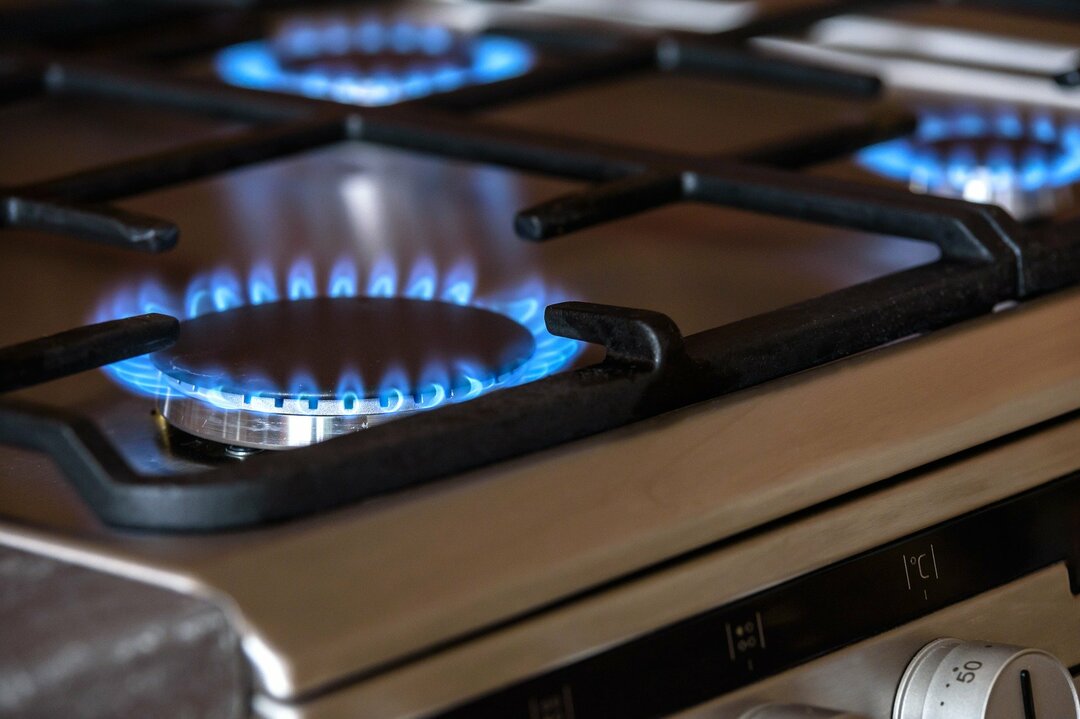
After turning on the gas, you need to observe the flame, because burning behavior may indicate equipment malfunction
By gas rules in private houses and apartments, the flame should not be knocked out from under pots, pans or cauldrons. If the fire is knocking out from under the dishes, it must be reduced. At the end of the work of the gas stove, turn off all gas taps.
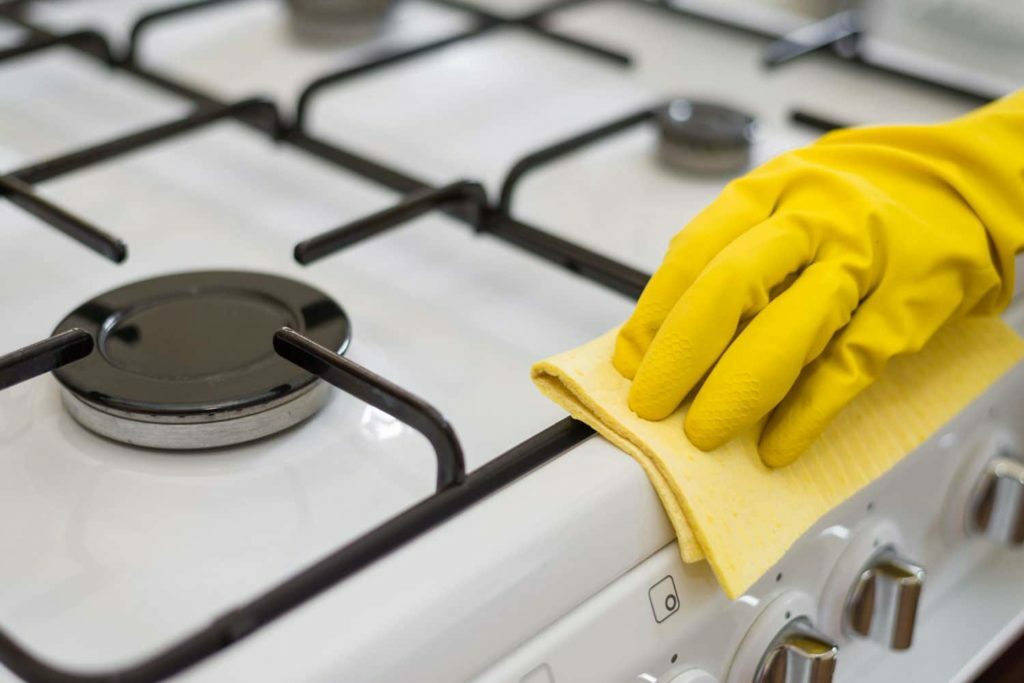
To clean the gas stove, use only special substances and napkins with a special nap, so as not to damage the surface of the device.
The gas stove must be cleaned regularly, carefully removing some parts (burners, handles, baking trays in the oven). It is prohibited to use additional products for dismantling equipment parts.
This can lead to serious damage and the impossibility of using the stove for its intended purpose in the future. When a person leaves the apartment for a long time, it is recommended to call a utility employee to shut off the gas pipeline.
Rules for using a boiler or stove
When installing the boiler and stove, care should be taken to insulate the chimneys. In the future, this will protect the chimneys from freezing. Before setting fire to these devices, it is recommended to ventilate the furnace and chimney.
Homeowners are required to check the draft before switching on and during operation of the equipment with the removal of combustion products into the chimney, and also periodically clean the chimney pockets.
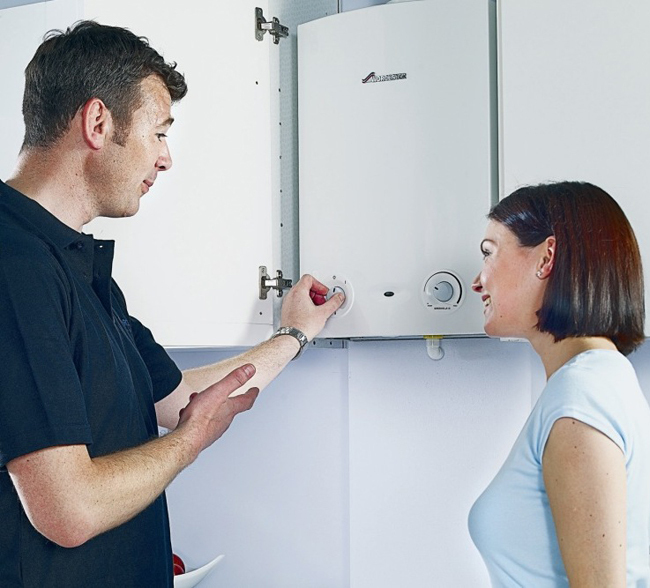
Maintenance of gas boilers and gasified stoves is considered the area of responsibility of homeowners, regardless of the size and capacity of the equipment.
If there is a draft in the chimney, and the device itself is in good condition, then you can ignite the igniter. The main burner valve can only be opened when the igniter is on. If the burner suddenly goes out, close the tap and re-ventilate the furnace or combustion chamber, and then re-ignite the equipment.
Homeowners should keep track of the chimney. Adverse weather conditions can disrupt the draft in the chimney: freezing rain (it can lead to freezing), wind and even fog. Also, any malfunctions and blockages of the chimney can cause a disruption in traction, due to which combustion products will enter the room, which will lead to poisoning of people with carbon monoxide.
The presence of ordinary gas in the air can be easily detected by its smell, but carbon monoxide is almost impossible to detect. It is colorless and odorless. It is impossible to feel it.
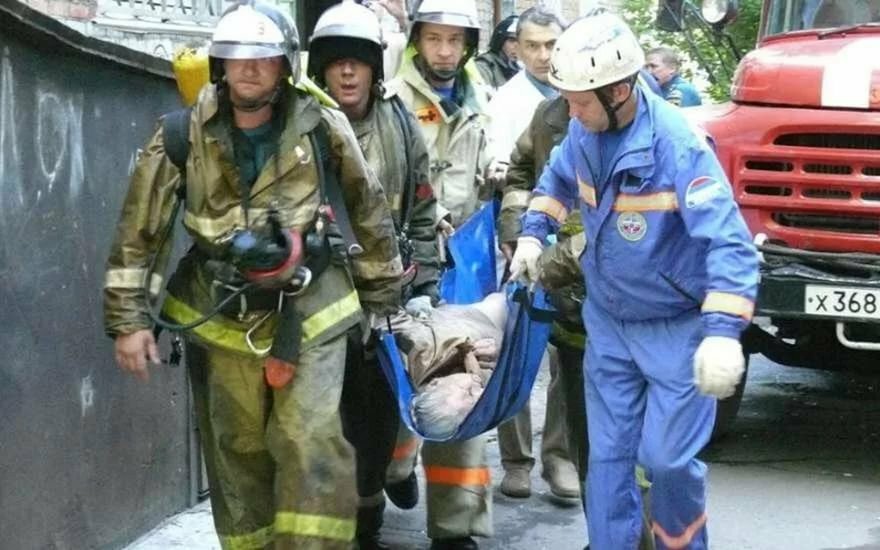
Even a few breaths of carbon monoxide can be enough for an adult to get fatal poisoning, therefore, when using heating equipment, you need to pay special attention to ventilation
At the same time, carbon monoxide is formed in small quantities during the operation of any gas equipment. If the device is defective, more carbon monoxide can be generated. If the concentration of carbon monoxide in the air is about 0.1%, all people in the room should immediately leave the building.
Rules for using a gas water heater
According to the new rules for the use of gas, those responsible for the operation of any indoor gas equipment (in incl. columns) are the owners of the premises or their responsible tenants (in the case of non-privatized housing).
A geyser used as a water heater can only be installed in a room that has a ventilation duct near the ceiling and free access of fresh air from outside. This can be an ordinary window vent and a gap between the door and the floor, in a pair they create natural draft and discharge exhaust air into the ventilation hole.
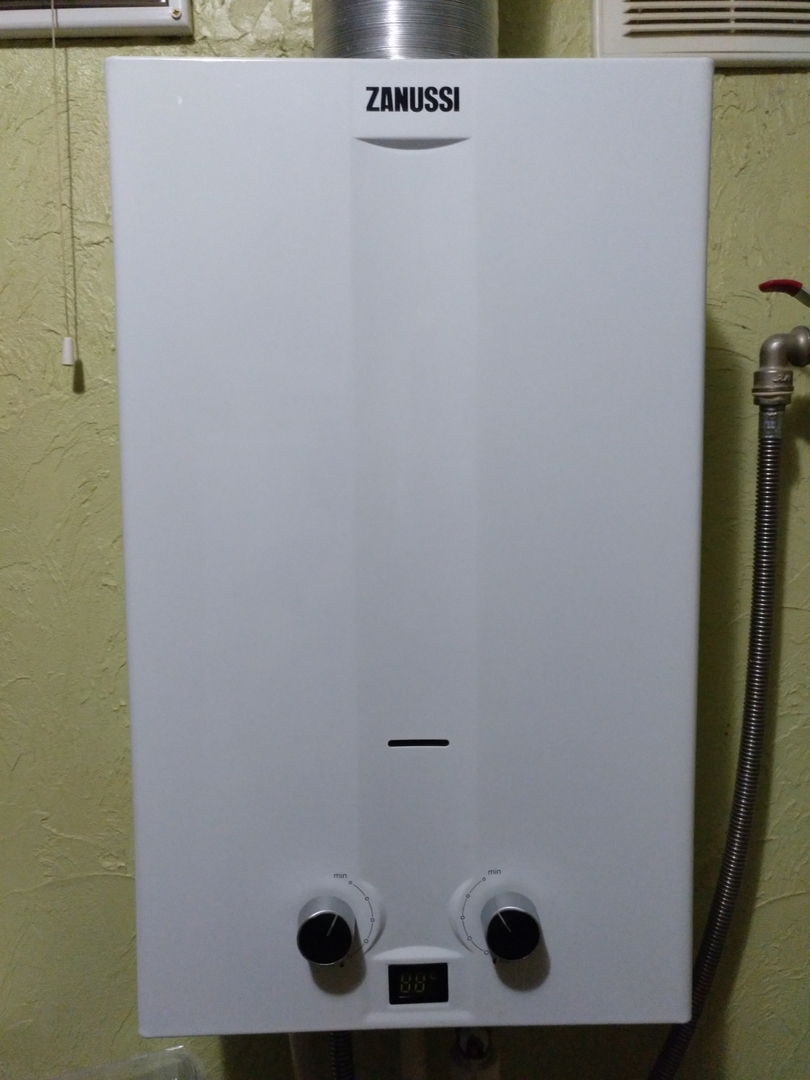
All gas appliances must be kept clean, and these devices must not be blocked by foreign objects, because there is a risk of overheating and ignition
In the event of a malfunction of any gas supply devices, it is necessary to call an employee of the gas utility organization by calling the emergency services number 04 or 104. Also, this must be done when the gas supply is suddenly cut off.
When operating gas appliances, people must monitor their normal operation, check the condition of chimneys and ventilation. Violation of these rules can lead to the filling of the room with carbon monoxide and other harmful substances. Any gas equipment requires careful operation and timely performance checks.
Private house gasification standards
You can supply gas to the cottage, connected to the gas main or installing gas tanks. In both cases, the procedure begins with the collection of technical documentation, and ends with the installation of equipment.
When connecting the main gas, the basic rules and regulations of gasification should be observed:
- the optimum depth for laying the gas pipeline in the section is from 1.25 to 1.75 meters from the ground surface;
- the introduction of a gas pipeline into a house is possible only through a wall or foundation;
- the ceiling height in a room with gas equipment (a boiler with a capacity of up to 60 kW) cannot be less than 2.2 meters;
- a room with gas appliances should be equipped with a ventilation system;
- glazing area of the room with gas appliances is 0.03 m2 by one m3, but not less than 0.8 m2;
- one boiler can be installed in a room larger than 7.5 m2, and two boilers - in a room with an area of 15 m2;
- when installing boilers with a capacity of 60 kW or more in the basement, a gas alarm should be installed;
- when installing two-burner gas stoves in a private house, the volume of the kitchen must be more than 8 m3, and four-burner - 15 m3.
When using imported gas, cylinders with propane-butane with a volume of 50 liters are brought into the house. They are not suitable for fully heating the house, but they allow the use of gas for cooking in the kitchen.
Cylinders should be stored in an iron cabinet in a separate room. Attach to the cylinder pressure regulator, bringing the indicator to the norm.

A gas pressure regulator (in other words, a reducer) is a special device that is necessary to reduce the pressure of a gas or gas mixture to the operating level
A steel pipe should run from the pressure regulator directly to the work equipment. The height of the gas pipeline must be more than 2.5 meters from the surface of the earth. The gas pipeline itself must be well anchored to the walls of the building.
Construction norms for gasification and rules for technological connection of capital construction facilities to gas networks are regulated by SP 42-101-2003, SNiP 2.07.01-89. And Government Decree No. 1314 regulates the order of relations between the customer for connecting to the main pipeline and the executing organization.
What if it smells like gas?
Wherever the smell of gas appears, ordinary people (non-specialists) cannot independently search for its source. Household gas regulations prohibit the use of open fire to detect its leak. It is life threatening.
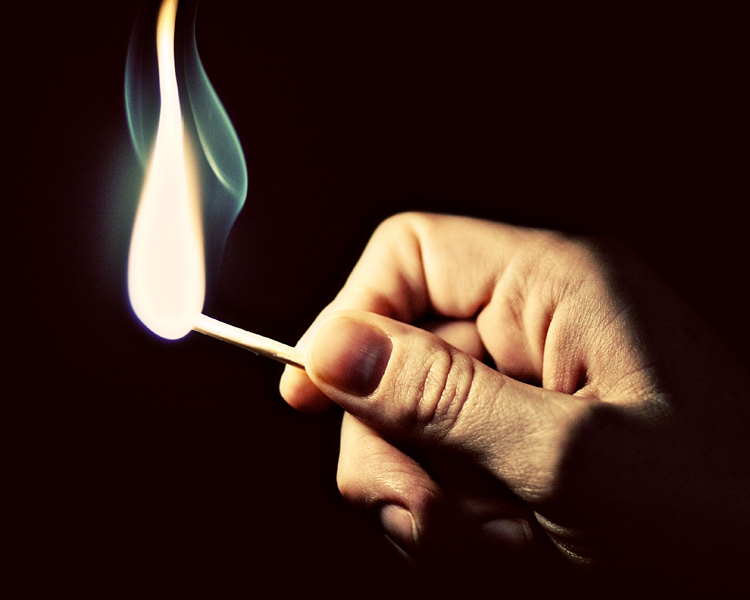
Checking the presence of gas in the air with a lighted match or lighter is not only stupid, but also dangerous, because the gas mixture can instantly ignite
If a person smelled gas in an apartment, in an entrance or on the street, he needs to immediately notify those around him so that none of them turn on (or off) the light and turn on the fire. Old wiring can spark spark, which can cause an explosion or fire in a gassed environment.
Also, if you smell gas, you must not:
- smoking;
- use the elevator;
- use electric calls, etc.
If the smell appears in the room, then you need to try to get out of it by first turning off the tap. In this case, you should be calm. Panic and confusion will only prevent people from leaving the building in an orderly manner.
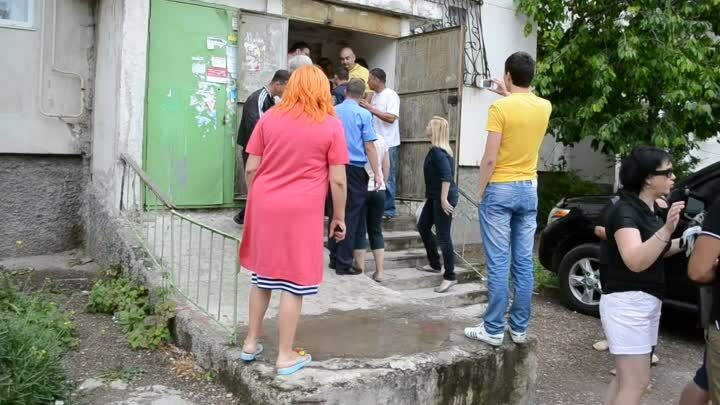
Any panic can lead to human casualties, so you need to maintain your composure and calmly go out into the street, going down the usual stairs (you cannot use the elevator!)
After going outside, call the gas service at 04 or 104 (if the call is made from a cell phone). The gas service is open 24 hours a day, so you can call it as soon as a problem is discovered. If there is a smell of gas in the yard, you need to move away from this place to a safe distance. Calling from ground zero is dangerous.

Calls to emergency phone numbers are free in all regions, regardless of the amount of money in the account and the tariff
After the call, you should take measures to get people out of the gas-polluted place, if they are still there. The smell of gas can make many people dizzy or sick, so help get them out into the fresh air. Before the arrival of the emergency team, you should try to ventilate the room.
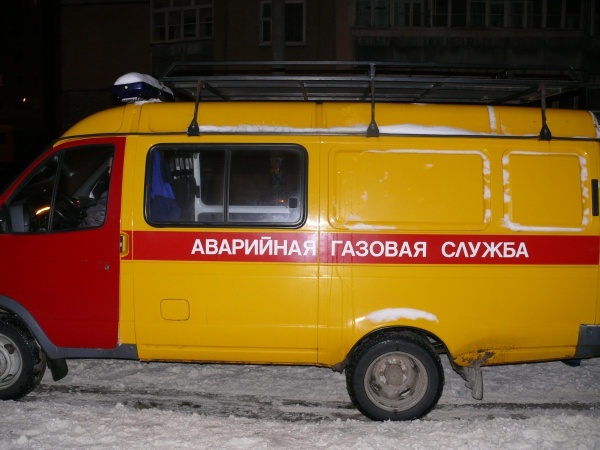
Even if the apartment has an intercom, then by the arrival of the emergency service you should go to the front door of the entrance in order to open the door for them (the intercom is also a technique that is not recommended for use in the event of a leak gas)
In the event of an accident involving a domestic gas leak, the person responsible for the damaged equipment will be considered the culprit. The Homeowner is responsible for the indoor appliances, and the Management Company is responsible for the indoor gas equipment located outside the apartment.
But a lot depends on the frequency of checking the performance of devices inside the apartment. If the owner did not let the gas service specialists home for periodic inspections, then his fault is obvious. If the efficiency gas pipes and the stoves were checked recently, then it is the checking organization that is responsible for their serviceability.
Prohibited actions when using gas
The owner of a house or apartment cannot carry out independent gasification of his own home. To bring gas into the room, he must contact the appropriate gas service.
Also, the homeowner is prohibited from reinstalling and replacing gas equipment. In the room where there are gas appliances, it is impossible to make redevelopment without obtaining prior permission from the organization with which a contract for the maintenance of gas equipment has been concluded.
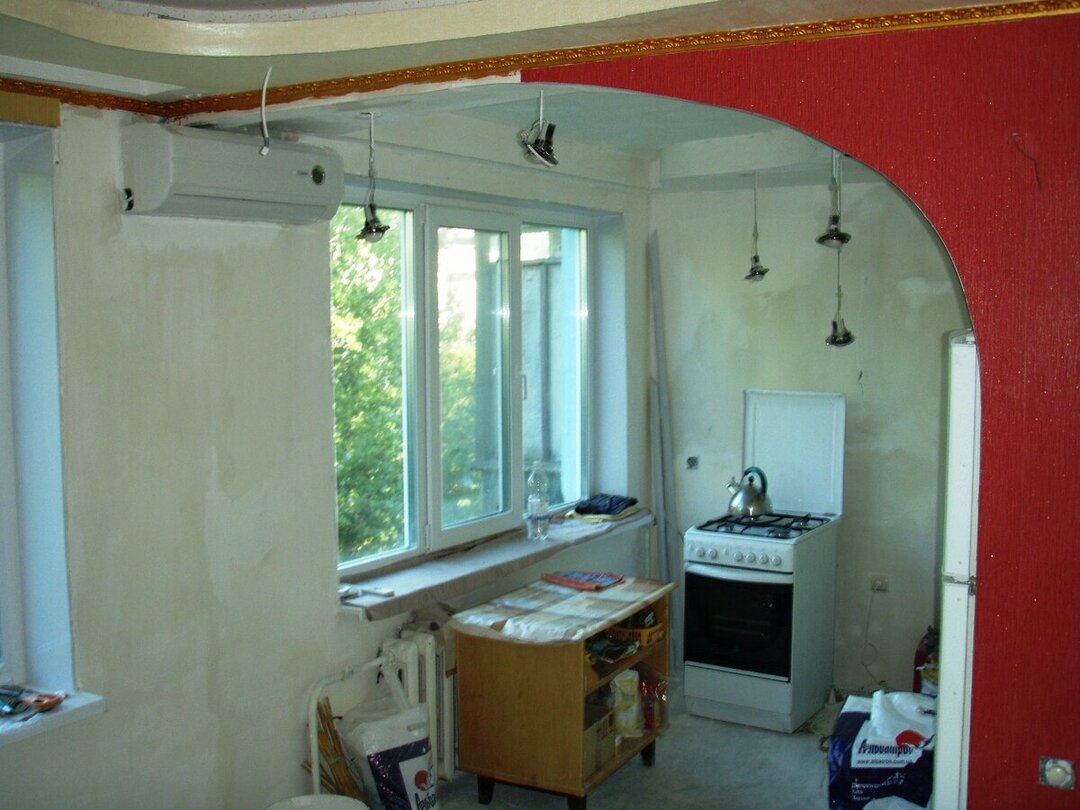
Utilities can judicially oblige the owner of a home with a gas stove, in which there was redevelopment was made, to restore the previous layout (regardless of the cost of the repair)
If stoves or water heaters are broken, you do not need to repair them yourself or use broken devices. For the repair of gas appliances (as well as cylinders and valves), you should contact the utility service with a description of the problem. It is especially dangerous to use gas in the event of malfunctions of gas devices, automation, fittings and cylinders if a gas leak is detected.
In addition, individuals are prohibited from:
- Make any changes to the design of gas equipment, chimneys and ventilation systems (it is especially dangerous to seal gas ventilation ducts).
- Disable automatic safety and regulatory devices.
- Use gas equipment in case of violation of the integrity of the masonry and in the event of cracks in the plaster of stoves and chimneys.
- Install and commission gasified stoves in apartments of ordinary houses.
- Use a forced draft or fan with gas water heaters and boilers operating.
- Leave working gas devices unattended (the only exceptions are units designed for continuous operation and equipped with safety automatics).
- Use gas appliances and the gas itself to heat the room, if they are not intended for this.
- Dry laundry over or near the stove.
- Store filled and empty LPG cylinders in the apartment. It is also forbidden to keep more than one gas cylinder with a capacity of more than 50 liters in a gasified private house.
- Break gas equipment or facilitate gas theft.
Persons who do not know anything about them, do not know how to turn off and do not control their actions must not be allowed to use gas appliances. These people include preschoolers, retirees with dementia, and people with all kinds of mental disabilities (both capable and incapacitated).
It is not yet recommended to turn on the gas while intoxicated.
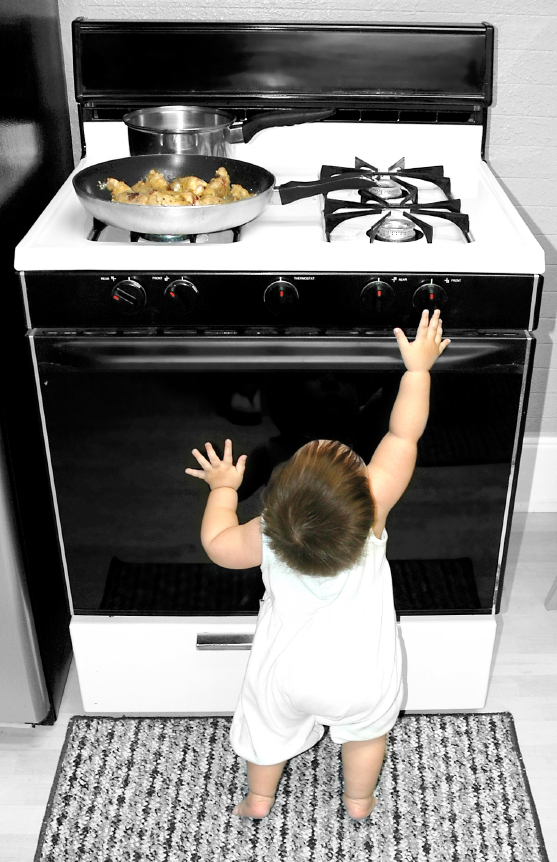
If a person is poorly aware of his actions, he can open the gas valve, but forget to light the burner, which will lead to a gas leak
It is also forbidden to twist, pinch, squeeze, break off or stretch gas hosesthat connect the plates or columns to the gas pipeline. You cannot move the gas stove away from the wall. This can lead to gas leakage and further accidents.
Monitoring the operation of gas equipment
In accordance with the provisions of the Housing Code of the Russian Federation, technical services conduct regular inspections of gas equipment in residential premises. The Government Decree No. 307 spells out the responsibilities of the organizations supplying the population with gas and their subscribers.
In accordance with government regulations and regulations of the housing estate, the owner or responsible tenant of real estate is obliged to provide them with free access to the apartment at any time of the day. These measures are necessary for the timely prevention of emergencies.
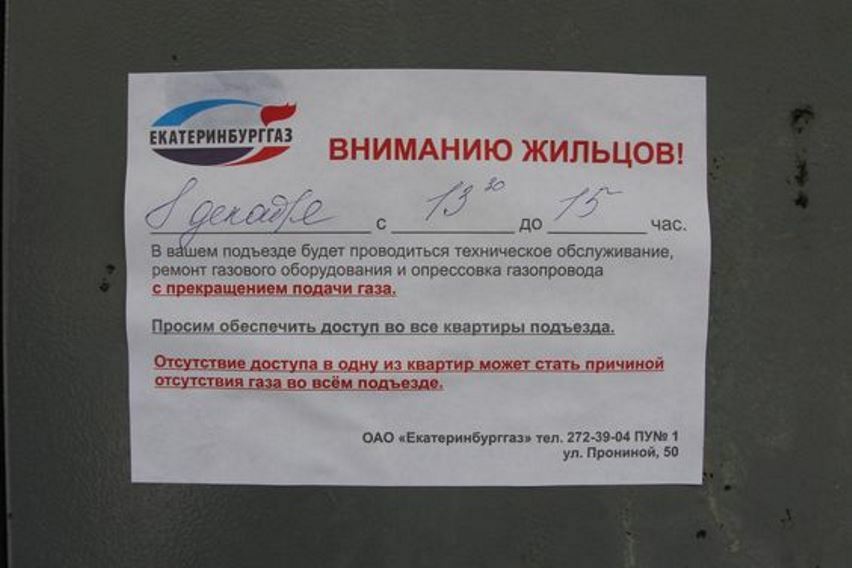
Usually on the doors of the entrances they hang up an announcement about the door-to-door round of gas workers, tk. the owner of the property must be at home at this time
Gas stoves are checked every 3 years, and water heaters and boilers - annually. Verification standards are established for any gas equipment installed in residential buildings. If during the check a malfunction is revealed, the device should be repaired or completely replaced.
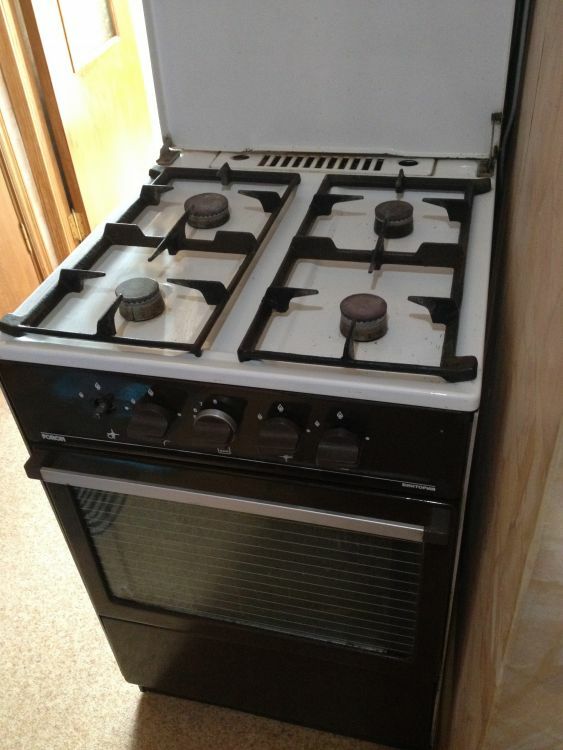
It is not recommended to replace broken equipment with used gas appliances, because they, too, may be faulty and thus have no guarantee
Also, during the equipment check, the gas service employee must instruct the homeowner on safety when working with a stove or column.
After testing and control activities, you need to sign the briefing log. A briefing log indicates that the homeowner is familiar with the basic rules for the safe use of gas.
Conclusions and useful video on the topic
If a person has not used gas before (for example, he lived in a house with electric stoves), then he must undergo an initial briefing before using the product. There are many detailed instructions on the use of gas devices on the Internet in text and video format. One of these video instructions is posted below:
Everything related to the gas industry requires careful adherence to building codes and safety regulations. Before turning on any gas equipment, you should familiarize yourself with the rules for using the device. In the future, this will help to avoid serious accidents.
Do you have valuable information on the topic of the article or information that will be useful to site visitors? Please write your comments in the block form below. Here you can also ask a question about a controversial or interesting moment, post photos.


